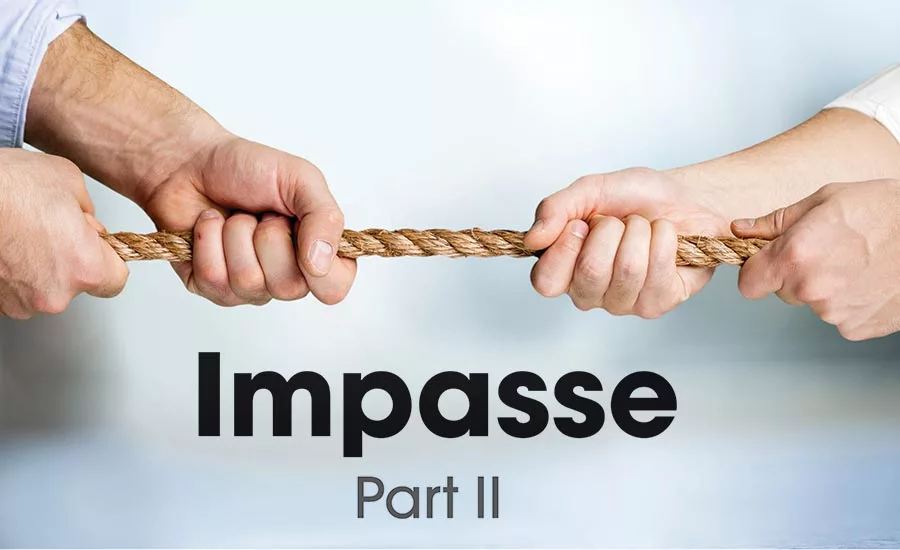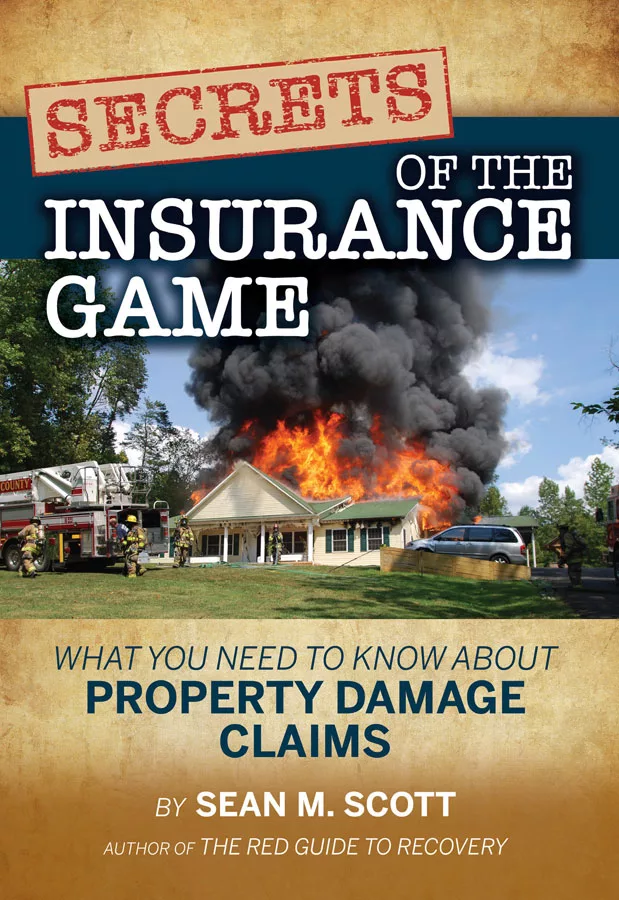Impasse, Part II: The role of the BATNA

When I first heard the term BATNA (Best Alternative To a Negotiated Agreement), I thought to myself, “No way! That’s a polite way of being okay with failure.” But I soon found that, regardless of where I turned to research negotiation strategies and tactics, the concept came up. The more I read about it and the more I let the theory marinate, the more practical applications I found for it.
The term BATNA was originally coined by Roger Fisher and Wiliam Ury in their book, Getting to Yes: Negotiating Agreement Without Giving In. The method basically involves utilizing your assets to develop a position that will keep you from accepting something less than what you want, while not closing the door to getting more than you expect. In essence, it takes the place of what most people refer to as the “bottom line.” The book even gives an example involving a negotiation with an insurance adjuster!
Far be it for me to undermine the wisdom of individuals who can stake claim to their own acronym, so I went in search of some practical applications for the restoration industry. I found many. However, to fully embrace the power of the concept, we must come to grips with the idea that having a BATNA is not an admission of failure. It is not about accepting second best or throwing in the towel. It is about using the assets and resources available to develop a position of strength from which to negotiate.
Did you miss part one? Check it out here.
To illustrate this point, let’s assume your family wants to go to an exclusive resort for vacation this summer, but the cost of the stay will exceed your vacation budget. You can try to negotiate a better deal, but what if the resort is unwilling to accommodate your budget? You could disappoint your family and not go. Or, you could agree to the resort’s going rate and rack up some credit card debt. Neither of these are good options because you are bargaining from a weak position and no BATNA.
A stronger position may allow you to bargain more aggressively with the resort and get a better deal. To strengthen your position, you must look at the assets and resources you have available. You could choose another location; go at a different time of the year; increase your vacation budget by sacrificing other events, activities, or entertainment you were planning; or delay the vacation until you’ve saved enough money to pay the going rate. Regardless of which alternative you choose, you have now created a BATNA to use in bargaining with the resort.
In looking at the concept in this manner, you are eliminating failure as an option. I like to think of it as developing various degrees of success. To those of us who enjoy winning much more than we hate losing, this means a heck of a lot. It also makes the entire negotiation process less stressful, less confrontational, and loads more fun.
Another aspect of the BATNA that is necessary to understand in order to completely profit from it is the misconception that it needs to benefit both parties. Reaching a mutually beneficial agreement when your relationship with the counterpart is important is one thing, but the same rules do not apply to the BATNA. Having a strong alternative should be all about you—your needs, your criteria, and your options. The stronger these items are, the easier it is to say “no” to your counterpart during a negotiation.
Project managers hate it when their bosses tell them to obtain multiple bids from subcontractors on the projects they run. The challenge is not only a burden on their time, but it also might be looked upon negatively by the subs they already know and trust. Consequently, project managers fall victim to single-sourcing tradesmen at the expense of their own production schedules and company profits. If we consider the situation from the best interests of the company, we find more benefits to having a deep subcontractor bench (resources) as opposed to not.
So why don’t project managers embrace the idea of getting multiple bids? Because they are more concerned with the needs of their counterparts (subs) than the needs of their own companies. The solution involves turning the emphasis around to focus the resources on creating assets that provide a strong BATNA for commonly negotiated criteria. Can’t get a plumber to commit to the production schedule? No problem. Call the next guy on the list. The key to success is having the list.

While using the BATNA to develop various degrees of success and developing alternative solutions that meet your own needs first is important, the most compelling agreement for adopting this philosophy when it comes to overcoming an impasse is the ability to walk away from the bargaining table. This is one of the most underrated positions in any negotiation. We see it play out in real estate deals all the time. Who gets the best deal in real estate? The buyer who is willing to walk away because they don’t need the deal.
Unfortunately, the restoration world is less like real estate and more like the kidnapping and hostage scenarios Chris Voss describes in his best-selling book, Never Split the Difference. Someone always wins and someone always loses. Or so it might seem.
Who gets the best deal in restoration? The party with the strongest BATNA. Unfortunately, this plays to the insurance carrier’s strengths and takes us back to the beginning of Part I of this article. They can be a positional bargainer because of the strength of their assets and resources. They have the checkbook, the influence, and a long list of contractors willing to do the work for the price they are willing to pay. In other words, they are willing to walk away from the table because they have a multitude of options.
The only way to turn the table around is for contractors to have a BATNA that is equal to or stronger than that of their counterpart, the insurance carrier. Sounds like a dream, right? I know. Even as I am writing this, I’m thinking to myself, “Tim, you better have something good here…” So here it comes.
The Best Alternative To a Negotiated Agreement for a restoration contractor who can’t settle a claim with the carrier is to say “no.” Now, I know that I just got done explaining in Part I that saying “no” is a lose-lose option and, yes, I hate losing. However, I like winning more. And, in order to win and win more often, you sometimes need to be willing to walk away from the table. In other words, don’t pick a fight you know you can’t win. The only way for this to be possible is to have a book of business so strong that your production backlog is greater than capacity, and the financial position of the company is so strong that no single job will ever have a significant influence on cash flow. While this might seem like a dream for some, it is reality for others.
Remember, the role of the BATNA is not to have a bottom line you are willing to accept. It is a true alternative to not getting the deal done. This means some deals will never come together. We need to accept this, because if we don’t, we end up compromising our position, not just once, but over and over and over. It’s the cumulative effect of these losses that eventually outpaces the wins, and before you know it, everyone is caving like a deck of cards just to make payroll.
The impasse in business is inevitable, especially when it comes to working with insurance carriers. Those who negotiate from a weak position will eventually succumb to the demands of their counterparts and meet an excruciatingly long demise. Those who make a concerted effort to strengthen their positions with a BATNA will be able to meet these stalemates with grace, knowing that a better deal awaits them with more projects in the future. This has a compounding effect over time and is the reason why those who have more get more. Be the latter. Build better bargaining positions by building a better business.
Looking for a reprint of this article?
From high-res PDFs to custom plaques, order your copy today!








